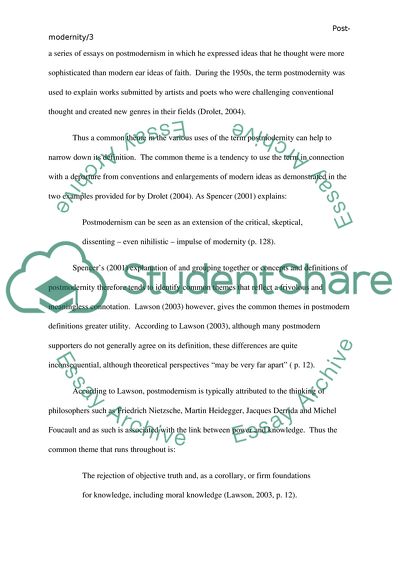Cite this document
(Is Postmodernity a Useful Concept Literature review Example | Topics and Well Written Essays - 2250 words, n.d.)
Is Postmodernity a Useful Concept Literature review Example | Topics and Well Written Essays - 2250 words. https://studentshare.org/sociology/1759906-is-postmodernity-a-useful-concept
Is Postmodernity a Useful Concept Literature review Example | Topics and Well Written Essays - 2250 words. https://studentshare.org/sociology/1759906-is-postmodernity-a-useful-concept
(Is Postmodernity a Useful Concept Literature Review Example | Topics and Well Written Essays - 2250 Words)
Is Postmodernity a Useful Concept Literature Review Example | Topics and Well Written Essays - 2250 Words. https://studentshare.org/sociology/1759906-is-postmodernity-a-useful-concept.
Is Postmodernity a Useful Concept Literature Review Example | Topics and Well Written Essays - 2250 Words. https://studentshare.org/sociology/1759906-is-postmodernity-a-useful-concept.
“Is Postmodernity a Useful Concept Literature Review Example | Topics and Well Written Essays - 2250 Words”. https://studentshare.org/sociology/1759906-is-postmodernity-a-useful-concept.


